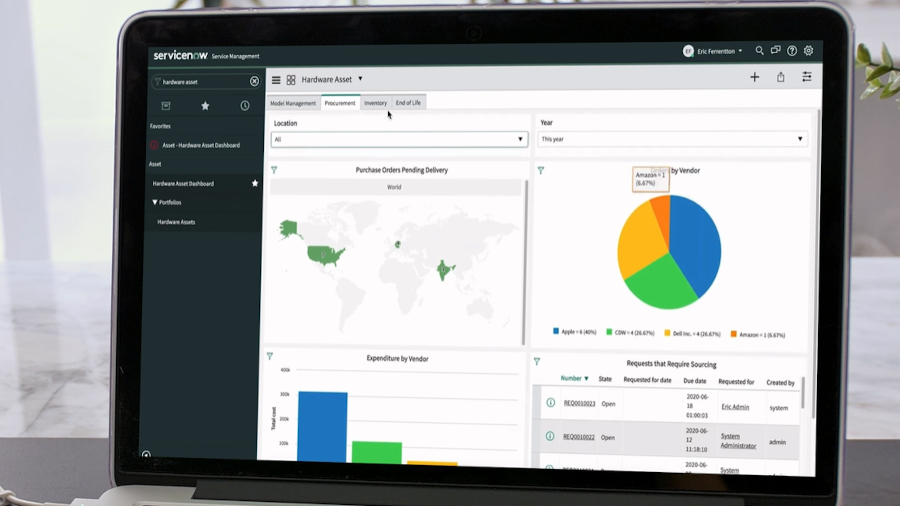 CLOUD
CLOUD
 CLOUD
CLOUD
 CLOUD
CLOUD
ServiceNow Inc. today introduced new tools that will enable users to write custom apps without coding and find information they need for their work faster using artificial intelligence.
The features are rolling out as part of the latest release of ServiceNow’s namesake cloud platform. The platform is used by companies to manage the parts of their business that involve delivering a service. Information technology teams, for example, rely on ServiceNow to provide technical support, while customer service groups use it to process client inquiries.
The main highlight of today’s update is App Engine Studio. It’s a low-code development tool that ServiceNow says enables users without software engineering expertise to create simple apps, such as a form interface for sharing files between departments, in hours.
To build an app, users define an action and steps that should be taken in response to that action. For example, an action can be a file upload to a business application, while the steps taken in response might include sending a copy of the uploaded file to a database. App Engine Studio allows users to build such workflows by dragging and dropping elements onto a visual canvas, after which the tool automatically turns the workflows into a shareable app.
To lower the learning curve, ServiceNow is pairing the tool with what it calls AppEngine Templates. AppEngine Templates are pre-packaged app building blocks that make it possible to create workflows in less time.
On the artificial intelligence side, in turn, ServiceNow’s latest release brings two new tools designed to improve its users’ productivity. Both are based on technologies that the company obtained through startup acquisitions.
The first new feature is an AI-powered search engine that allows ServiceNow users to look for information stored in the platform using natural-language queries. ServiceNow is aiming to provide a similar experience to the one offered by consumer search services such as Good. In IT departments, for example, the natural language query support can help administrators more easily find records such as past technical support requests.
The search function is joined by a tool ServiceNow calls Predictive AIOps. As part of its feature set for IT teams, ServiceNow provides troubleshooting capabilities that help administrations find and fix technical issues. Predictive AIOps aims to make fixing technical issues easier by automating parts of the workflow.
According to ServiceNow, the tool sifts through operational data from a company’s infrastructure to identify potential problems that might otherwise go unnoticed. It then groups together the data points available about each issue and automatically generates recommendations for how to fix it.
Predictive AIOps is based on technology that ServiceNow obtained through the acquisition of startup Loom Systems Inc. in 2020. The natural-language search capability, in turn, is based on software developed by Attivio Inc., a startup ServiceNow bought the year prior.
On top of the low-code development and AI tools, today’s platform brings a host of more narrowly focused features aimed at specific departments. IT teams have access to a tool called Roadmap Planning that provides an interface for planning technology initiatives. Customer service agents, in turn, can use ServiceNow’s new Universal Request feature to more easily transfer support tickets to other departments.
Support our mission to keep content open and free by engaging with theCUBE community. Join theCUBE’s Alumni Trust Network, where technology leaders connect, share intelligence and create opportunities.
Founded by tech visionaries John Furrier and Dave Vellante, SiliconANGLE Media has built a dynamic ecosystem of industry-leading digital media brands that reach 15+ million elite tech professionals. Our new proprietary theCUBE AI Video Cloud is breaking ground in audience interaction, leveraging theCUBEai.com neural network to help technology companies make data-driven decisions and stay at the forefront of industry conversations.